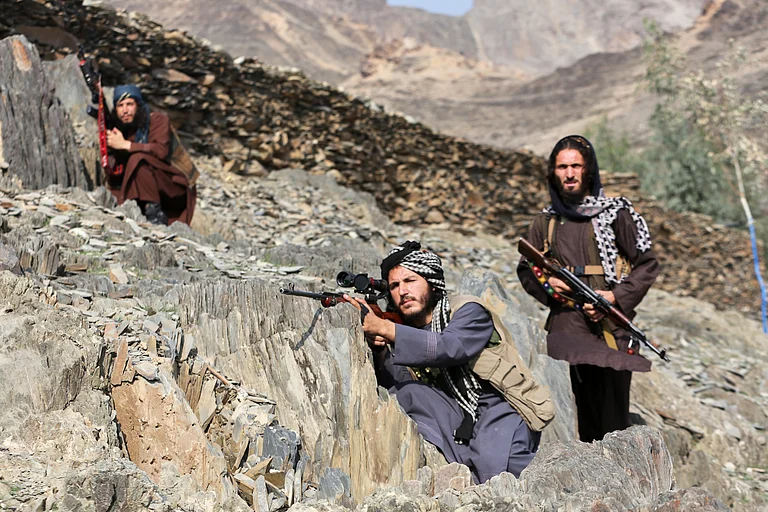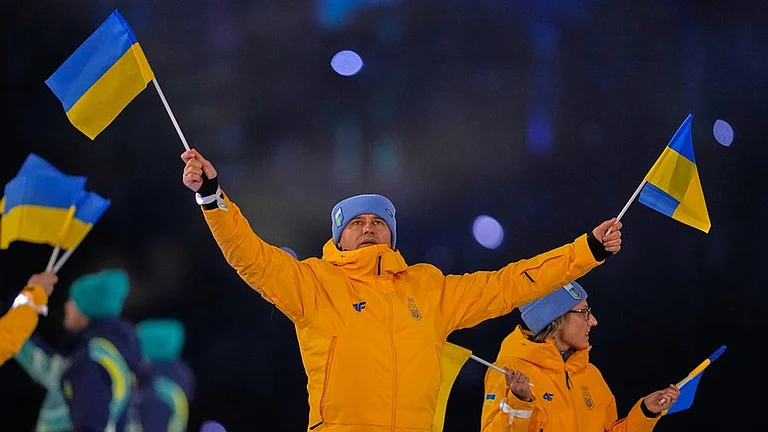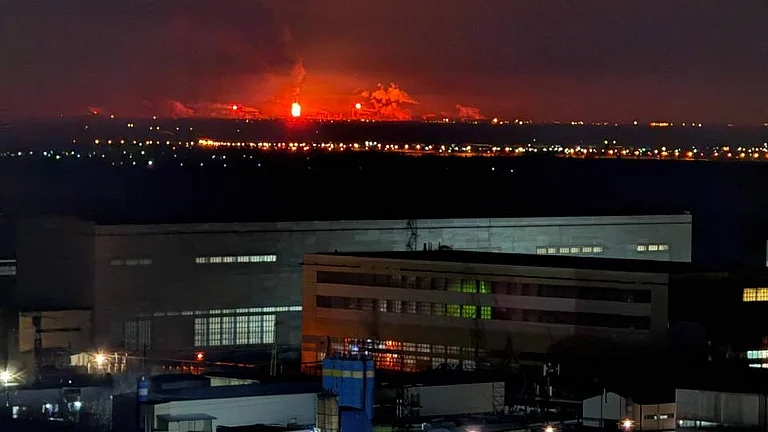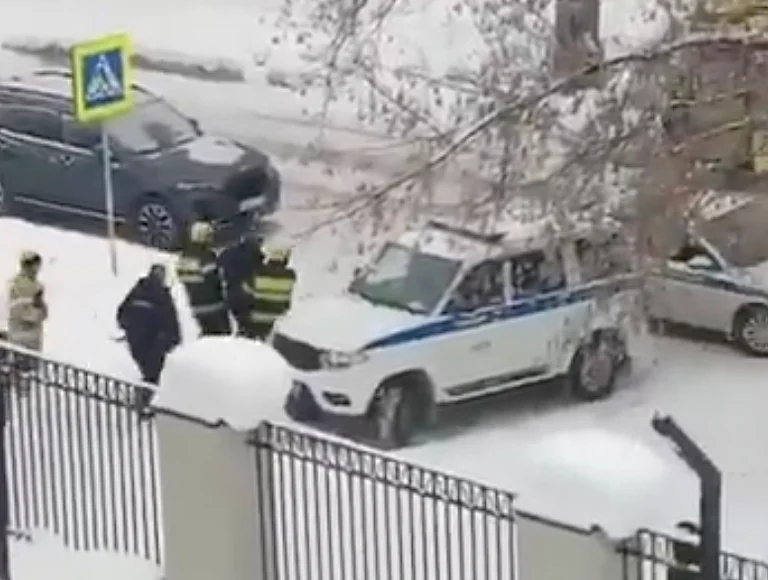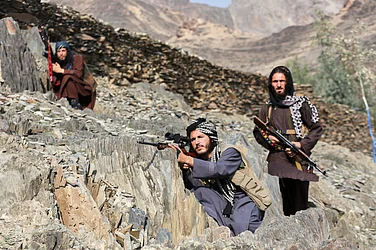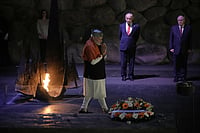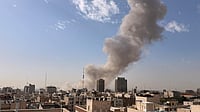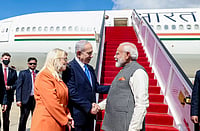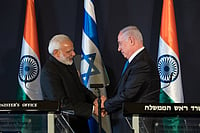The brazen attack at a concert hall in the heart of Moscow has led to the death of as many as 133 people. The toll is expected to rise as several others are seriously injured.
The Islamic State, also called the Islamic State of Iraq and Levant (ISIL) has claimed responsibility for this massive terror strike. But it will take a few days or weeks to unravel the entire plot as more evidence comes in. The Americans had warned of a terror plot in the Russian capital and warned embassy staff to take precautions. Why would the IS target Moscow? There are many reasons for Russia to come under the radar of the IS.
Russia has been at the forefront of the war against Islamists in Syria as well as in many of the Central Asian Republics, where jihadis are pushing to overthrow secular leaders and establish sharia laws that are strictly enforced in their countries.
In 2015 when Syrian President Bashar-al-Assad was in dire straits, as his regime was tottering under the onslaught of the Sunni rebels backed by Turkey and other regional powers, Moscow sent out its military to help the besieged president. The presence of the Russian forces brought about a dramatic change in the situation. The Russians succeeded in decimating IS and drove them out of areas controlled by the Syrian government. The IS lost much of its clout and glamour among terror outfits after its fighters were either killed or driven out of their enclaves. Today they are a shadow of their former self and operate in areas controlled by the US and Turkey around the Syrian border.
The civil war in Syria saw the world powers play out their politics by taking sides in what was essentially a fight between the majority Sunnis and the government led by Bashar al Assad who is from a minority Alwite Islamic sect, not recognized by orthodox Sunnis. This was the period when Sunni-Shia rivalry was at its peak in the region. So Turkey, Qatar, Saudi Arabia and the UAE were funding and arming the rebels to oust Asad from power. In the civil war the US, France, and other European nations backed the Sunni rebels. Russia and Iran supported the Syrian government.
There are wheels within wheels in diplomacy and shadowy intelligence agencies (often called the dirty tricks department) form the underbelly of international diplomacy in war zones, where big power indulge in shadow boxing.
In an expose of the CIA the well-known academic and writer Jeffrey D Sachs wrote in Common Dreams website on February 2024, "In the 2010s, the CIA ran deadly operations to topple Syria’s Bashar al-Assad, again with Islamic jihadists.’’ The attempt to topple Assad continued according to Sachs: "In the case of Syria, we learned from a few stories in the New York Times in 2016 and 2017 of the CIA’s subversive operations to destabilize Syria and overthrow Assad, as ordered by President Barack Obama.’’
After the breakup of the Soviet Union, Russia had prolonged conflict with Muslim majority Chechnya. The first war was an effort to break away and declare independence. The war lasted from 1994-1996. This was in the early days of the Russian Federation with Boris Yeltsin at the helm. The second Chechnya war was between 1999-2009. The war began in August 1999 when Islamic fighter from Chechnya infiltrated Russia’s Dagestan area and in the next month Islamists bombed several apartment buildings across Russia cities, killing around 300 people. Putin put down the rebellion with a strong hand and dubbed the resistance against Russian domination as ``Islamic terror’’. Russian troops were accused of massive human rights abuse. Putin placed a loyalist as governor and gradually Chechnya’s Islamic movement fizzled out with many of the former fighters preferring to join IS and other groups.
The Islamic Group Khorasan Province or ISIS-K is a regional affiliate of the IS and is now operating for control of more and more territory from the Taliban. The ISK has a strong presence in several Central Asian Republics. The ISK like the IS regards Russia as an enemy as Moscow has backed many of the former Soviet Republics in their fight against Islamic forces. Moscow is keen that jihadi groups do not spread their ideology into Central Asia republics that were once a part of its extended union.
Russia like many other countries including India, US and China has built bridges with the Taliban. The move to befriend the Taliban was taken by most countries, following the Taliban-US agreement that indicated that the Taliban would one day be back in control in Afghanistan. Moscow had advised New Delhi to begin talks with the Taliban but at that time India was not keen. In August 2021, as the Taliban closed in on Kabul, and Western diplomats closed their embassies and evacuated, the Russians stayed back and the embassy was open within two days of the Taliban takeover. Russian Ambassador Dmitry Zhirnov was the first foreign diplomat to meet with Taliban officials after the takeover.
One reason for Russia’s engagement with the Taliban was to ensure that the ISK and other Islamic terror groups were kept in check and not allowed to operate and extend their presence in Central Asian countries. The Taliban, unlike the IS and the ISK, is confined to Afghanistan and is not interested in spreading its ideology to other countries. It is very much a homegrown movement confined to Afghanistan.
The terror strike in Moscow has come at a time when Russia’s war in Ukraine shows little likelihood of coming to an end. Will the attack affect President Vladimir Putin’s position at home? Unlikely say analysts.








